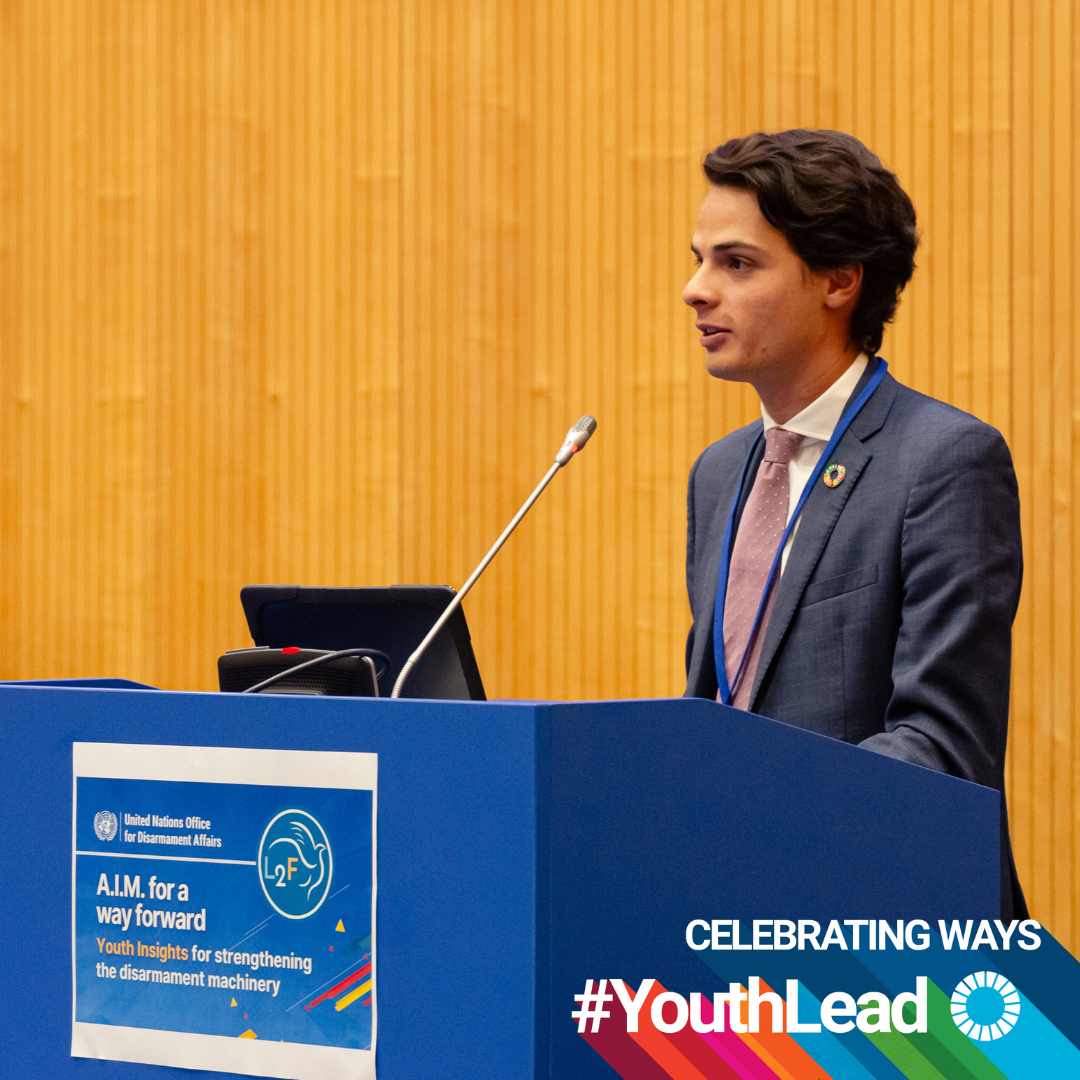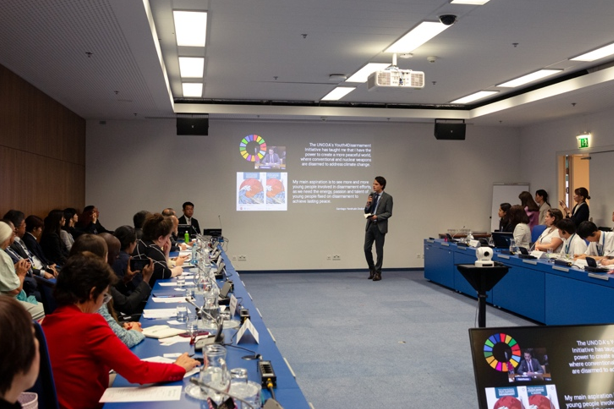
Santiago Yarahuán Dodero explores one of the ‘hidden causes of climate change’; carbon emissions from global military forces.

Santiago’s participation in the Mayors for Peace Youth Forum in Vienna 2023
Santiago Yarahuán is a Mexican law student specializing in international law and a young leader pertaining to the UN Office for Disarmament Affairs’ #Youth4DIsarmanent Initiative as a #Leader4Tomorrow and Leader to the Future. In addition, Santiago recently got selected by the Mexican Government to be part of the Youth Delegation of Mexico to the 78th Session of the UN General Assembly. Concerning his international law trajectory, he has enrolled in multiple specialization courses in international law, concerning international humanitarian law, international water law, international public law, among others. Moreover, he was an intern at the Legal Advisory Office of the Ministry of Foreign Affairs of Mexico and at the Permanent Delegation of Mexico to the OECD, and he is the current Head of Liaison with Student Members of the International Law Association (ILA) Mexican Branch. In addition, Santiago has represented his community in the Senate of the Mexican Republic and has been selected at the Latin American level to be part of the Secretariat of several international MUNs.
The Hidden Cause of Climate Change
For a great deal of young people, myself included, stopping climate change is paramount, as it threatens to alter our present and future possibilities forever. Despite the above, I consider that current global youth activism against climate change fails to address one of the hidden causes of the climate emergency. The latter, as States have hidden intentionally and systematically a particular carbon footprint from flagship international climate treaties.
Global armies, the arms industry, and warfare are among the main sources of greenhouse gas (GHG) emissions, in view of the fact that they manufacture, maintain, and operate fossil fuel-intensive equipment and infrastructure. Their contribution to climate change is so enormous that experts estimate that they are responsible for 5 to 6 percent of global greenhouse gasses emissions, surpassing, for example, the global civilian aviation and shipping sector emissions combined. As a result, it has been determined that the carbon dioxide (CO2) emissions from global military operations exceed the total carbon footprint of several countries in the world.
Moreover, it is worth mentioning that the global military budget continues to grow year after year, reaching an all-time high of $2240 billion ($2,240,000,000.00) dollars invested in a single year in 2022. The latter, bearing in mind there is a huge financing gap to achieve a global green and sustainable economy as current annual investment flows will not be sufficient because projected needs continue to exceed flows by 66%. In the case of nuclear weapons, $82.4 billion was spent in 2021 by nuclear-armed States, an entire amount that must be redirected, as these weapons should be removed from current arsenals to safeguard humanity’s existence.
In this context, it is natural to ask why states do not address their military GHG emissions, considering that through various instruments they have committed themselves to solve the global climate crisis. Well, by not wanting to potentially threaten their military power, they have systematically omitted to address the military carbon footprint in the relevant treaties from the 1978 Kyoto Protocol onwards, resulting in them not having to report, let alone reduce, these emissions.
In that vein, I strongly believe that we, the youth, must raise our voices and use the current momentum to include in our climate demands that States tackle their military GHG emissions and reduce their military budgets. The latter, as they are not doing so, considering that they are further expanding their military capabilities (which in turn produces more pollution) since the global military budget continues to reach record highs each year, even when they could be funding initiatives aimed towards combating climate change.
Consequently, if we want to reverse the trend, we must work thoroughly to ensure that States reduce their military equipment and infrastructure, and no longer think about expanding their inherently polluting capabilities. If we succeed in doing so, it is my opinion that we will generate a new vibrant and meaningful conceptualization of disarmament, one oriented towards reducing GHG emissions.
We, the youth, will experience the effects of climate change firsthand, but we will also be the first to be responsible because it is up to our energy and resilience to make the decision-makers change towards a more sustainable course, ¡let’s get to work!
For ideas on how to get started, check out my Comprehensive Guide for Youth to Address Climate Change through Disarmament with artwork by Ms. Juliana Pinho Müller, one of UNODA’s #Leader4Tomorrow.
